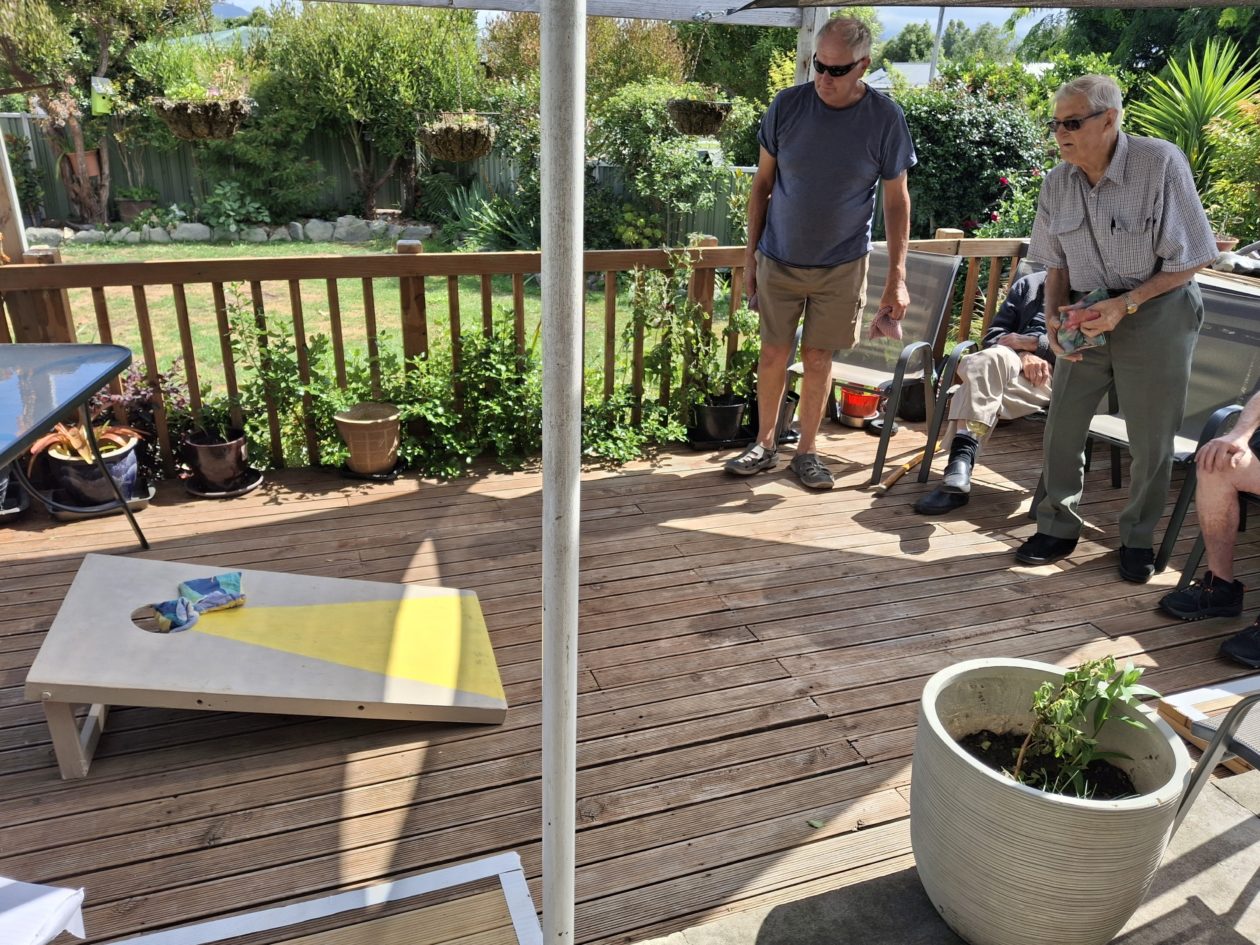Change of plan? Dementia Mate Wareware HomeShare pilot puts people at the centre of their day in South Island

Sometimes things don’t always go according to plan at some of the new Te Waipounamu (South Island) Dementia Mate Wareware HomeShare programmes – but that’s exactly how they like it.
Alzheimers Marlborough and Otago are facilitating four of the 17 HomeShare programmes around Te Waipounamu (South Island).
The programmes are designed for people with mild to moderate dementia mate wareware and benefits include socialisation, engagement, education, raising awareness and reducing stigma and getting the community involved.
A typical programme has up to five people attending and is ideally held in somebody’s home, or a homely community space. A typical day might look like a morning tea, activity, outing, lunch and another activity.
Percy has been attending one of the Alzheimers Marlborough HomeShare programmes once a week for about a year.
He says having such a small group means they can do things like go for a coffee or an ice-cream – depending on how they’re feeling on the day.
“We go for walks, coffees and things like that. I’m a great coffee connoisseur so I like going out and getting coffee.”
Percy says the programme helps get him out of the house as well as giving his daughter (and care partner) a break.
Four South Island Alzheimers NZ organisations and Dementia Canterbury work together to provide consistent DMW Educationin the Te Waiponamu HomeShare Pilot programme. The pilot is being delivered in partnership with Presbyterian Support Upper South Island (PSUSI), Presbyterian Support Otago (PSO) Presbyterian Support South Canterbury (PSSC), and Arowhenua.
Alzheimers Marlborough Manager Catherine Donnelly says theirs was the first programme to be up and running successfully which has become the model for other HomeShare programmes.
There are two programmes in her area – one in Blenheim and one supporting PSUSI’s work at Havelock.
“Spring Creek HomeShare – which we manage – is an extension of the work Alzheimers members do in our day centre.”
Catherine says HomeShare takes a holistic approach to supporting people living with dementia mate wareware, particularly as regular day programmes are designed typically for people at a more advanced stage of their journey. Valuing the person with dementia mate wareware and those who care for them is vital – and speaks to the heart of the programme.
Since the programme is mostly held in people’s homes, or homely community spaces, they have taken some health and safety precautions like painting white stripes on steps so people can see them better.
She says the adaptability of the programme is one of it’s points of difference.
“It doesn’t matter if it’s six cups of coffee in a row – the plans are there but they can change. It’s all about adaptation and being able to think on your feet.”
For example, one day somebody brought along something which the group then spent the day fixing in the host’s shed.
“So that wasn’t what was intended for the day but it didn’t matter – it was something meaningful.”
Alzheimers Otago Manager Antoinette McLean says the organisation is privileged to be able to support the HomeShare activities in addition to their other brain activity programmes delivered throughout Otago.
There are three HomeShare programmes they facilitate – one in Wanaka, one in Cromwell and one in Queenstown.
Each HomeShare site has its own character and design based upon the needs of the local community.
She adds there is now a waitlist for the programmes, and attendance has been steady, proving that the service has been much needed and long-awaited.
The Dementia Mate Wareware HomeShare pilot and six other pilots being implemented around the country are being evaluated by an Auckland University team on behalf of Health NZ.
Caption: Kevin Riley and Graeme Ward at the HomeShare programme

